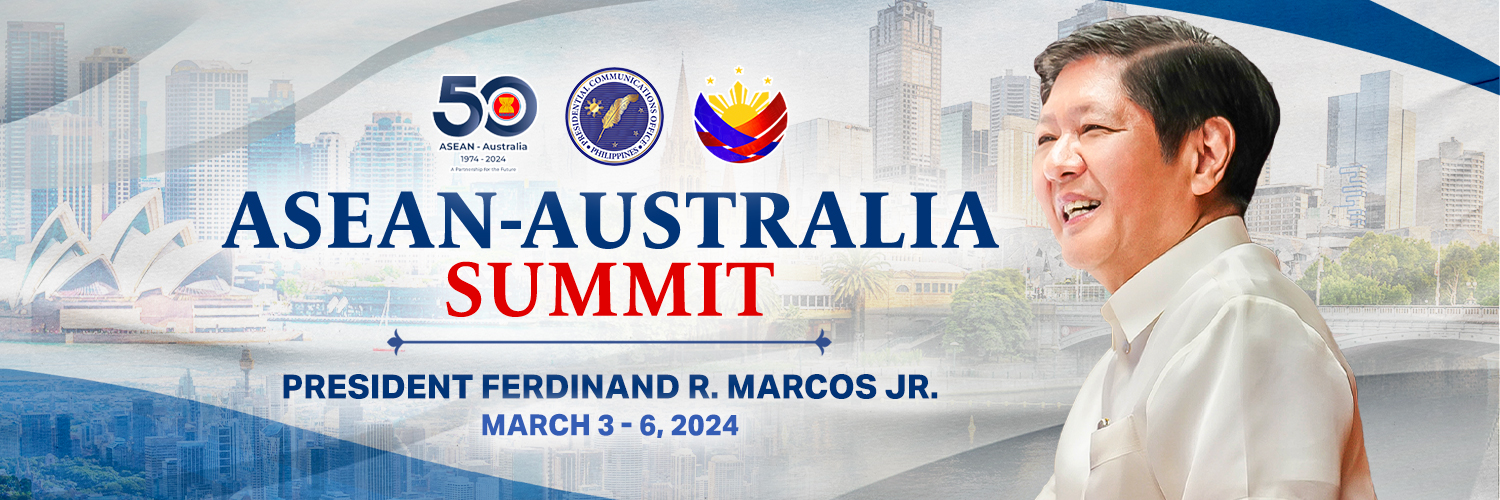
President Ferdinand R. Marcos Jr. invited on Monday Australian business leaders to consider investing in the Philippines as he welcomed opportunities for greater cooperation between the Philippines and Australia in terms of climate change and energy transition.
In his speech during the Philippine Business Forum led by the Department of Trade and Industry (DTI) in Melbourne, President Marcos said that the Philippines is the ideal destination for complementation in both manufacturing and services.
“I invite esteemed Australian businesses to consider the Philippines as a reliable partner that can support your expansion and operations. Let us embark on a journey of strengthened economic ties, mutual growth, and shared success,” President Marcos said.
Australia Philippines Business Council (APBC) President Rafael Toda was present during the forum along with Founder and Deputy Chairman St. Baker Energy Innovation Fund Trevor St Baker AO, and Medgate (Asia) Holdings Pty Limited Director David King.
Other business leaders present during the forum were Australia New Zealand Business Chamber President Benjie Romualdez and Philippines Australia Business Council (PABC) Chairman Atty. Dennis Quintero.
Macquarie Private Bank Senior Adviser Martin Lakos was the moderator of the forum.
President Marcos underscored that the forum serves as a “celebration of the robustness and resilience of the Philippine economy.”
The President also emphasized that the presence of the Filipino of the business leaders is a clear manifestation that the Philippines is enhancing its regional economic integration agenda on several aspects.
The presence of the Australian business leaders, on the other hand, “speaks volumes about the importance of fostering robust business partnerships and collaborations” between the Philippines and Australia, according to President Marcos as he thanked them for their unwavering support.
He added that the forum also highlighted the vitality of the economic and commercial ties of the Philippines and Australia.
In 2023, total trade with Australia amounted to USD 4.06 billion with imports valued at USD 3.497 billion and exports at USD 561.8 million.
President Marcos stressed that the recent global challenges, especially those that were brought about by the COVID-19 pandemic, present an opportunity for the Philippines to enhance its participation in regional and global value chains.
“As part of our development strategy, we are keen to explore new avenues of cooperation and foster mutually beneficial partnerships that are commercially meaningful,” President Marcos told Australian business leaders.
The chief executive also highlighted the country’s steadfast commitment to purposeful reforms, which is evident in key legislative amendments such as the Public Service Act, Foreign Investments Act, Retail Trade Liberalization Act and the Renewable Energy Act.
Other legislative amendments include the streamlined business registration, infrastructure development, and the Comprehensive Tax Reform Program (CREATE Act), and the overhaul of fiscal incentive structures and responsive policies, including those facilitating public-private partnerships (PPP).
He also highlighted before business leaders the establishment of the Maharlika Investment Fund, which is the country’s sovereign wealth fund that underscores dedication to financing priority projects and driving socioeconomic impact.
“We prioritize the ease of doing business, exemplified by efforts to simplify tax payments, streamline regulations, and showcase our unwavering support for businesses,” he said.
He added that the Executive Order No. 18 also established green lanes for strategic investments, simplifying procedures and reducing bureaucratic hurdles.
The chief executive also shared during the forum about the enactment of three priority bills such as the Public-Private Partnership (PPP) Code of the Philippines; the Internet Transactions Act; and the Tatak Pinoy Act.
“We continue to accelerate and deepen policy reforms to improve the environment where business such as yours will continue to thrive,” he said.
On renewable energy, President Marcos said that the Philippines accord great importance to addressing climate change and achieving energy transition for being highly vulnerable to climate crises and to strengthen dedication to environmental stewardship and encourage private sector to actively engage in sustainable practices.
He recognized that Australia also gives importance to climate change issues as it is a priority under the Strategic Partnership with the Philippines.
“I welcome the opportunity for greater cooperation on climate change and energy transition.I’m glad to see that we have made a good start here today with the agreements that we have come to, between our private sector partners,” he said.
Aligned with our efforts on decarbonization, we are positioning ourselves as regional hub for smart and sustainable manufacturing,” he said.
President Marcos said that the Philippines is at the forefront of attracting sustainability-driven strategic investments powered by renewable energy in order to achieve as the regional hub for smart and sustainable manufacturing.
Before concluding his speech, President Marcos stressed the trade and investment policy tools in place through the ASEAN-Australia-New Zealand Free Trade Agreement (AANZFTA) and the Regional Comprehensive Economic Partnership (RCEP) Agreement, which aims to enable regional economic integration agenda.
“I am hopeful that this will be complemented by other policy tools that will enhance Philippines-Australia supply chain partnerships and facilitate greater foreign direct investments. So in conclusion, let me reiterate our gratitude for your presence and active engagement in this forum,” he said.
“The members of my economic team will provide the support needed by your businesses for investments to continuously grow and prosper. Together with you as our Strategic Partner, we can make investments happen in the Philippines,” he added.
President Marcos expressed confidence that the relationships forged during the forum “will contribute significantly to the economic vibrancy” of both the Philippines and Australia. PND

